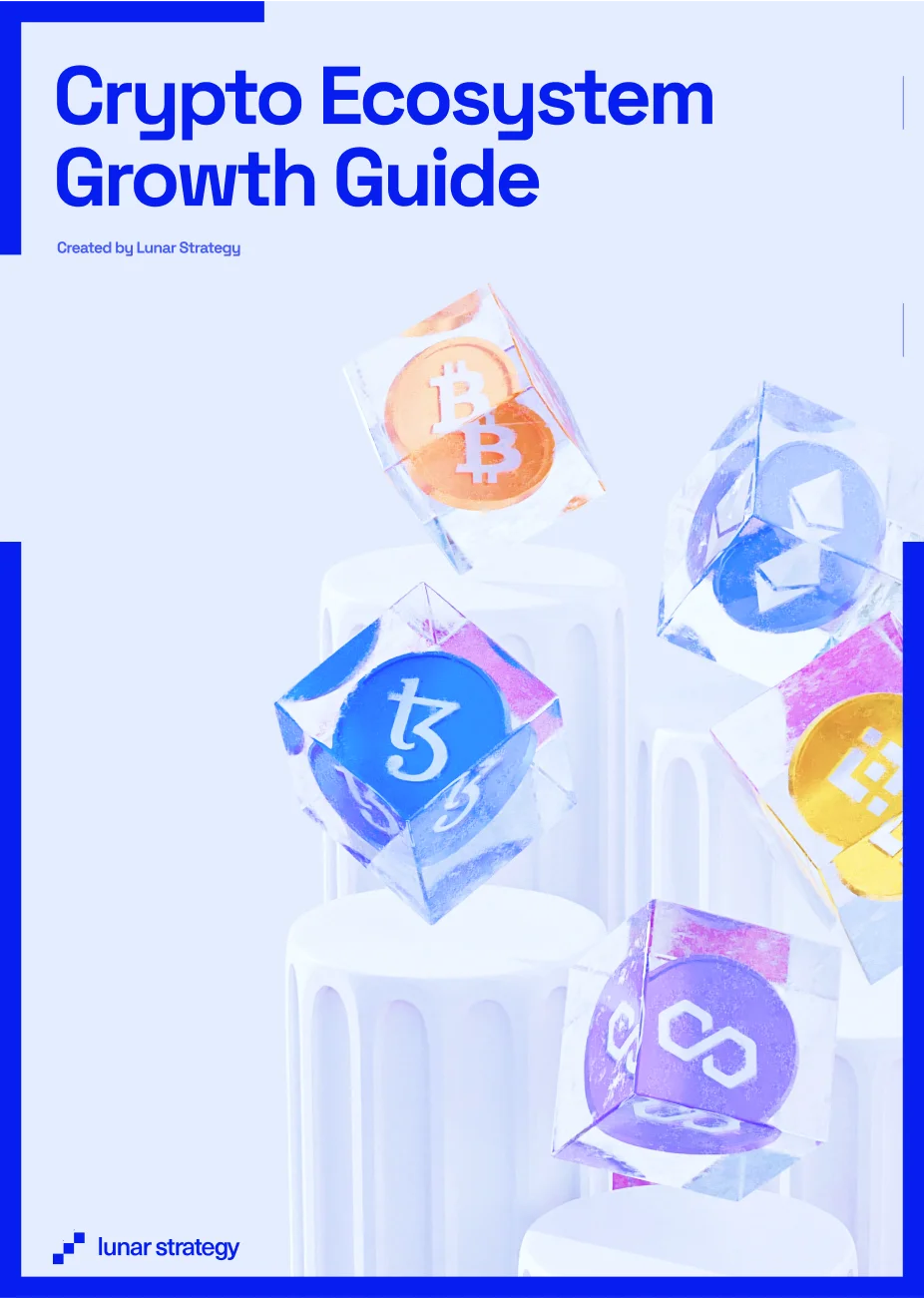Introduction
When people first started to grasp the impact of Satoshi Nakamoto's white paper, his use of blockchain technology often stood out as "the next big thing". It was only part of the bitcoin ecosystem and has since been adopted by tens of thousands of crypto projects.
As you'll already know, the impact of this disruptive technology is much bigger than just a database for disruptive finance. People have been researching and testing blockchain implementations for various innovative and unusual applications.

It's still Early
In these early days of blockchain technology, you may be surprised at how many real-life applications there are where blockchain adoption is already disrupting old systems. The gaming industry is one of these markets where blockchain, and crypto, is already making an impact.
When we heard that Blockchain has the power to completely change the gaming sector, we decided to take a look and see in what ways that change is already happening - and what to look out for on the road to mass adoption.
Let's take a look at how crypto and blockchain technology may impact this $200-billion global industry.
Why the gaming industry?
You may ask: "Why is the gaming industry such a powerful onramp?"
What a great question! The answer lies in psychology, skill, and the size of the market.
The Psychological pull of Gaming
We've all heard that gaming can become an addiction. Psychologists agree that it can be a problem - but many more studies show that gaming contributes meaningfully to innovation and the ability to think strategically.
Have a look at this Ted Talk about the Gaming Community: https://www.youtube.com/watch?v=2f_t81iL8_I&feature=emb_logo
The Size & Adaptability of the Gaming Community
As a result, innovative games draw a large number of users. Over 3.2 billion people play games every day. These gaming communities are strategic and active. Simply put, gamers know how to learn complex and new technologies faster than any other person.
By definition, gamers are adaptive - they like trying new things and have open minds toward new ideas which will improve their gaming experience or increase the levels of satisfaction (i.e. deliver a dopamine rush) in their favorite games.

Endless Possibilities
As you can imagine, the possibilities for NFTs and blockchain games are massive. Digital assets are already a part of many games. Imagine you are able to unlock a digital item as a reward for overcoming an in-game adversary or winning tournaments - and that reward is a unique NFT.
If you can then sell that NFT for ETH on the secondary market, you'll be able to use your revenue to enhance your gaming experience on the same or other platforms. Or pay the bills, as many in South America are already doing:

Unlocking previously untapped Value
This process ends up creating a totally new value network that is fast, liquid, and global. With attractive offers such as play-to-earn, many gamers are already taking advantage of this new disruptive tech - bringing the crypto economy straight into the real world.
Benefits of the merger of crypto and the gaming industry
When both sides Win
Combining blockchain with the gaming sector has advantages for both industries:
- With the value add of cryptocurrency and NFT scarcity, new gameplay ideas can drive innovation to a new level. Unlocking digital assets with real-world value stands to enhance the gamer's overall experience.
- Rewards can provide an impetus to play more games. With the introduction of schemes such as play-to-earn, gamers are actively seeking out new ventures. There's now something tangible for users to gain from the time they spend gaming.
- A key benefit for gamers is that assets earned in games can be owned outside of the game. For game developers, the non-fungible tokens minted could open up other applications, such as commissions on resales, revenue sharing from other platforms, and increased awareness from users in the marketplaces.
- Playing games is a universal experience. Players make micro-transactions every day and those transactions require integration with payment gateways. These gateways have all the inefficiencies and fees of traditional finance. Blockchain technology stands to reduce or remove these fees altogether.
- In effect, blockchain gaming presents an entirely new level of decentralized economy to the gaming sector. This has the potential to gamify the emerging cryptocurrency economy. Gamification is one of the greatest ways to drive the successful adoption of new technologies.
- Developers are actively building crypto and blockchain features into the player experience. For the first time, new games have the opportunity to add scarcity to their environment.
- The metaverse offers blockchain-based game developers a network to build the future. Game-changing applications are being released as the crypto world and the online gaming communities discover how to work together. It's a whole new market for crypto adoption and rewards-based online gaming which is attracting a majority of innovative gamers into a whole new scenario.
NFTs - powering the future of gaming innovation
With the rise and fall of many early NFT projects, it is key to note that it is this technology that has allowed in-game objects to become valuable outside of the initial game for which they were created.
When a rare item is minted on whichever of the public blockchains the game developers select - the digital asset is available for transfer or sale according to the terms of the smart contract used. This data rests on the blockchain and is visible for all the world to see.
Nearly half of all the data on blockchain networks is already generated from online gaming.
New Standards & Innovations
Gaming developers are creating new token standards which are contributing meaningfully to ecosystem development as a whole. These transactions generate noteworthy on-chain activity that in turn rewards the miners of the blockchain networks used.
Metaverse games with their investment and social opportunity
The Metaverse and NFT games have developed rapidly in the last year or two, but the industry as a whole is still in its early stages. You can definitely expect more impact on the global economy, especially as more and more traditional gaming companies partner with blockchain companies to drive mass adoption in the near future.
While the development in the large-scale metaverse is quite noteworthy, the potential that various metaverse games hold to interoperate and interact with each other could become the driving force behind the emerging blockchain and crypto-gaming ecosystem.
By consolidating VR’s immersive environments, the addictive power of video games, the value propositions of blockchain and crypto, the power of non-fungible tokens for in-game assets, and social media’s interactivity - metaverse games are one of the key blockchain industries to watch in the next era of the internet.
We've already seen so much progress - from reimagining video gaming, the launch of NFT-based in-game items, disrupting the gaming console market, and creating more immersive experiences than before - with nearly half of blockchain transactions currently being generated by the gaming community.
Gamefi - the Crypto Earning experience
The term "GameFi" - a combination of Gaming and Defi - represents the gamification of blockchain-based earning opportunities.
GameFi crypto games create a play-to-earn rewards system that has allowed game developers to reduce the perceived cost of playing crypto games by offering potential rewards. This has helped to increase the size of their target audience.
As gamers, whatever in-game assets you earn or buy remain assets in your crypto wallet. Items you create within games may also be NFTs which could potentially allow you to turn your hobby into a full-time career!
Conclusion
For the gamer, the experience is just getting better and better - with more opportunities to be rewarded for gameplay and additional opportunities to connect with other players. The chance to earn crypto and turn it into money is also huge.
For game developers, the availability of more tools and ecosystem interoperability attracts more players. Developers can launch their own tokens or use existing cryptocurrencies - which can build loyalty or open up access to larger communities.
With blockchain being introduced in the gaming industry, some of the challenges of real money flows are removed. This makes it the perfect place for experimenting with blockchain’s first-ever mass adoption.
Only two years ago, much of the concepts we've covered today were still only theory - but today we're already seeing most of these ideas working in the gaming industry.
If you're wondering if crypto gaming is an industry worth looking into - we'd say the answer is a resounding YES.
With the above context, do you agree that gaming will drive the mass adoption of cryptocurrency?













Subscribe to receive recent articles
.png)
.webp)


















.webp)
.webp)














